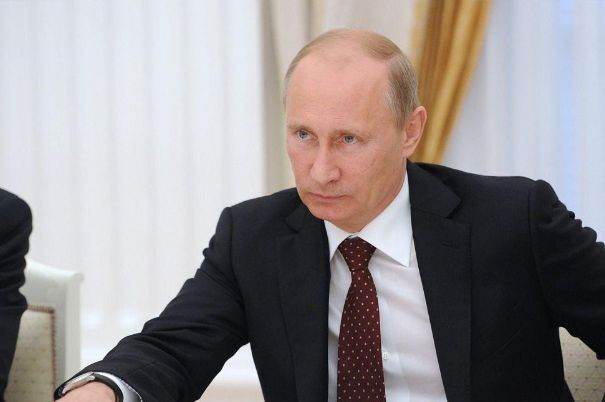President Biden's administration has been reviewing how to approach Russia and how to respond to a series of what they call problematic Russian actions. Today, we have action on one item — a response to last year's poisoning of Alexei Navalny, a critic of the Kremlin who's currently in Russian custody. NPR White House correspondent Franco Ordoñez is following the story. Franco, good morning.
FRANCO ORDOÑEZ, BYLINE: Good morning, Steve.
INSKEEP: What's the administration doing?
ORDOÑEZ: Well, I mean, first, let me say that the European Union has previously sanctioned the Russian officials behind the attack on Navalny. And as you noted, Navalny is an opposition leader. For years, he's been critical of President Vladimir Putin. And last August, he was poisoned with a nerve agent.
INSKEEP: Right.
ORDOÑEZ: He actually returned to Russia earlier this year, and he's been in jail since. So today, the Biden administration is essentially catching up with the Europeans on the sanctions that they leveled earlier. This now — they're announcing that the U.S. will sanction seven Russian officials and place bans on commercial activity with 14 parties. And those are in Russia, Germany and Switzerland. And these measures basically freeze any assets held here in the United States by those individuals and those parties and are supposed to be a deterrent to anyone wanting to deal with them.
INSKEEP: Well, that's interesting — freezing the commercial assets of Russian individuals, presumably officials who are involved in some way. Vladimir Putin himself is said to be a very rich man, so who knows about the others? But are the seven named in the statement so far?
ORDOÑEZ: Not yet, Steve. They will announce those later today. We also expect — we reporters also expect to get more information from the various agencies involved because there's a lot of different agencies involved — State Department, Treasury and Commerce Department as well.

INSKEEP: So what does this tell us about the way the president expects to deal with Russia, Franco?
ORDOÑEZ: Well, a senior administration official made clear today that they are neither seeking to reset the relationship with Russia or to escalate it. But the official acknowledged that they do expect this to be a, quote, "challenging" relationship. They said the tone and substance will be much different than it was in the previous administration.
I do want to note, though, that this is — action is being taken in coordination with allies. This is something that the president has said is really important to him — you know, having that strength in numbers, working with friends to address these issues. And he said — Biden said last month that Putin wants to undermine the NATO alliance. Here's actually how Biden described it last month in a speech.
(SOUNDBITE OF ARCHIVED RECORDING)
PRESIDENT JOE BIDEN: He wants to undermine the trans-Atlantic unity and our resolve because it's so much easier for the Kremlin to bully and threaten individual states than it is to negotiate with the strong, closely united trans-Atlantic community.
ORDOÑEZ: The senior officials also said that they still see opportunities to be constructive, and they will pursue them — you know, such as the five-year extension of a New START nuclear treaty, which they signed in January.
INSKEEP: This is really interesting. Not going to reset, meaning not going to look into Putin's eyes, as George W. Bush did; not going to bring a reset button, as Hillary Clinton once did under Obama; not going to look away from Russian election interference, as Donald Trump did. Just try to move forward — is that what they're trying to do?
ORDOÑEZ: Yeah, they want to move forward. They do want to find areas to be constructive. But they also note that in the recent months, there has been a lot of action that they know there's going to be some conflict. That includes, you know, reviewing the SolarWinds hack, which they said appears to be of Russian origin.
INSKEEP: Franco, thanks for the update.
ORDOÑEZ: Thank you.
INSKEEP: That's NPR's Franco Ordoñez on this day that we're learning that seven Russian individuals and some other concerns have been sanctioned for Russia's treatment of a dissident.












